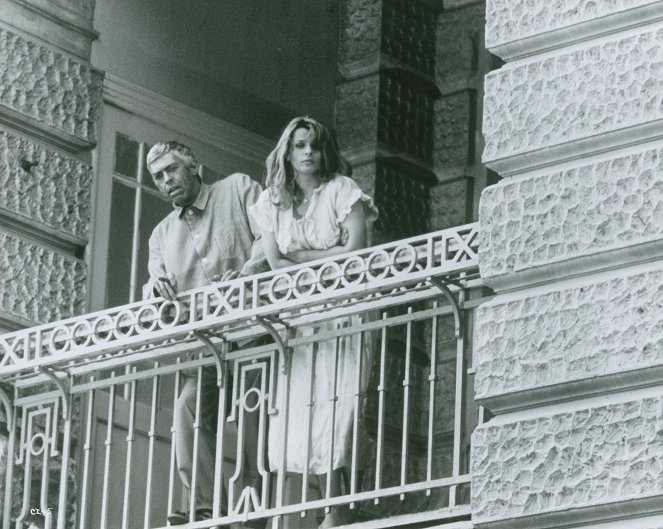Ohjaus:
Sam PeckinpahKuvaus:
John CoquillonSävellys:
Ernest GoldNäyttelijät:
James Coburn, Maximilian Schell, James Mason, David Warner, Klaus Löwitsch, Vadim Glowna, Roger Fritz, Fred Stillkrauth, Véronique Vendell (lisää)Suoratoistopalvelut (1)
Juonikuvaukset(1)
Saksalaisjoukkojen perääntyessä itärintamalle saapuu lännestä uusi pataljoonan komentaja korvaamaan taistelussa kaatuneen upseerin. Kapteeni Stranskylle etulinjan taistelujen raadollisuus on uutta, mutta hän on päättänyt hankkia itselleen kunniaa ennen kotiinpaluuta. Stransky tavoittelee haluttua kunniamerkkiä, rautaristiä, ja on valmis hankkimaan sen hinnalla millä hyvänsä. (Soulmedia Fin.)
(lisää)Arvostelut (2)
Erinomaisen raaka sotaelokuva näyttää täydellisesti sen, että länsirintaman sotilailla meni pahimpienkin taisteluiden aikaan paremmin kuin natseilla Venäjän rintamalla. Stainer ei ole amerikkalaisten sotaelokuvien tyypillinen sankari, kuten esimerkiksi kapteeni Miller elokuvasta Pelastakaa sotamies Ryan. Hän on hurja Soldat, jota sota ei ole säästellyt eikä hänkään nyt säästele muita. Haluan erityisesti mainita Maxmilian Schellin suorituksen pahiksen roolissa ja mahtavan länkkärityylisen lopun... Vaikka idässä ollaankin. :)
()
As an adventure film, Cross of Iron works quite well, with James Coburn oozing a great deal of personal charisma, the German uniform suits him, and his unit consists of several other interesting characters whose fates the viewer follows with suspense. The setting of the story on the Eastern Front during a time when American historiography, in the spirit of the Cold War, downplayed the Soviet contribution to the defeat of the Axis and only tangentially mentioned the former wartime ally in the media or artistic environment, is also interesting. As an anti-war film, Peckinpah's project is no longer so unequivocal, as its main hero is too complexly written and his behavior often contradicts his statements. Without war, this cunning warrior would be nothing, so his anti-war rhetoric is hypocritical. Additionally, the artistic means by which the director aims to support his vision, such as short flashbacks or hallucinogenic scenes, bothered me quite a bit. Finally, as a film set in a specific environment and attempting to appear realistic, Cross of Iron fails completely. It is a typical script construct of someone writing from a distant country and decades later, without being able to empathize with the circumstances and mindset of the heroes. The film contains dozens of nonsensical elements that could be endlessly discussed. For example, Steiner berates his commander and his deputy in one scene, when in so-called democratic armies, he would have ended up in a facility mentioned by the British film The Hill for the same actions during times of success, and against the wall during times of failure. Totalitarian armies, whether Japanese, German, or Soviet, dealt with such men much more effectively. The mortality rate in penal units was fascinating, and someone like Solzhenitsyn could tell you what he got his stay in the gulag for. Some dialogues, and most notably the colonel's speech to his captain, reek of pathos. Many other motives also don't hold up, for example, when Steiner captures a Soviet boy. It is not an act of mercy as the creators may have imagined, but a truly malicious death sentence. The Soviets regularly shot similar returnees... Overall impression: 60%.
()


Mainos